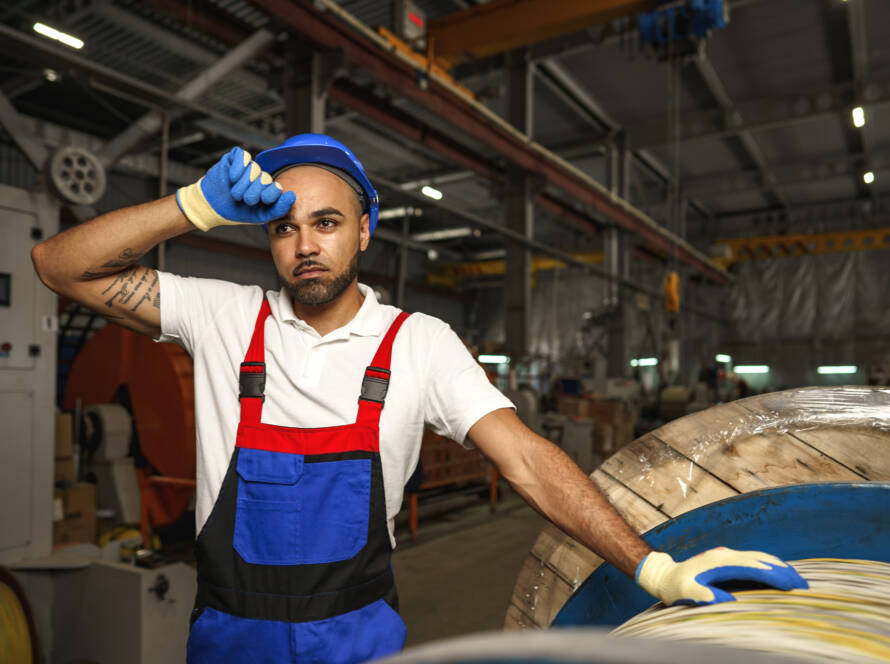In an era of unprecedented volatility, the concept of resilient manufacturing has moved from boardroom buzzword to operational necessity. The last two decades have been defined by financial crises, trade disruptions, climate events, geopolitical fractures, and, most recently, a pandemic that tested the very limits of global supply chains. For family offices, conglomerates, and institutional investors like Neyius, manufacturing resilience is not merely about absorbing shocks—it is about transforming operational philosophy into a durable strategy for long-term value creation.
This article explores lessons learned from global operations across industries, geographies, and historical cycles. It examines the legal, financial, and structural frameworks that underpin resilience, while applying these insights to the Neyius model of stewardship-driven investment. In doing so, it goes beyond slogans and identifies the governance, capital allocation, and human capital practices that distinguish organizations that survive from those that thrive.
Defining Resilient Manufacturing
Resilience in manufacturing is best understood not as rigidity but as adaptive durability. It is the balance between efficiency and redundancy, between short-term profitability and long-term survival.
The Evolution of the Concept
- Post-war industrial expansion (1950s–1970s): Resilience was tied to vertical integration. Firms controlled production from raw materials to finished goods.
- Globalization and just-in-time (1980s–2000s): Efficiency eclipsed resilience, with lean supply chains designed for cost minimization.
- The post-2008 landscape: Financial shocks revealed fragility in over-leveraged, over-optimized systems.
- COVID-19 pandemic: Exposed dependence on single suppliers, geographic concentration, and limited redundancy.
Today, resilience is not optional—it is a fiduciary duty, especially for family offices and institutional capital whose investment horizons span generations.

Global operations consistently show that over-concentration—whether in geography, supplier base, or product line—creates existential risk. Examples abound:
- Electronics firms overexposed to Taiwan’s semiconductor ecosystem face geopolitical threats.
- Textiles concentrated in Bangladesh or Vietnam contend with climate shocks and labor disruptions.
- Energy companies reliant on single markets face regulatory or political volatility.
Lesson: Resilient manufacturing requires diversified footprints, not merely as a risk hedge but as a growth enabler. Family offices like Neyius recognize this as akin to portfolio diversification in capital markets—a legal and fiduciary principle transposed into physical operations.
“A leader must have the vision and courage to think big, but must also understand the smallest concerns of the people.”
Lee Kuan Yew
Governance and Legal Frameworks
Manufacturing resilience is not just physical—it is juridical. The legal structuring of operations defines how organizations weather shocks:
- Entity diversification: Using subsidiaries, joint ventures, and SPVs to ringfence risk.
- Contractual protections: Force majeure clauses, arbitration frameworks, and multi-jurisdictional dispute resolution.
- Tax-efficient holding structures: Ensuring continuity of cash flow during crises.
Lesson: Manufacturing resilience must be embedded into corporate law and governance, not merely operational practices. For conglomerates, this transforms resilience into a codified duty of care.
Technology as a Buffer and Multiplier
Digitalization has redefined resilience. Global leaders leverage:
- Predictive analytics to anticipate demand shocks.
- IoT-enabled supply chains to identify bottlenecks in real time.
- Automation and robotics to reduce dependency on fragile labor pools.
- Blockchain for verifiable supply-chain traceability.
Lesson: Technology is not only a cost center but a risk-transfer mechanism. For Neyius, investing in textile tech or AI-driven apparel forecasting is not speculation—it is resilience capital.


Human Capital and Cultural Resilience
Resilient manufacturing is ultimately human. Case studies show that firms with deeply invested workforces recover faster from disruptions:
- Japanese kaizen cultures sustained post-disaster rebuilding.
- German Mittelstand firms built resilience through vocational training and loyalty.
- Multinationals with flexible remote management models adapted more quickly during COVID-19.
Lesson: Human capital is the irreducible core of resilience. For family offices, this insight mirrors the governance of dynastic wealth—institutions endure not through balance sheets but through transmitted values and competencies.
Case Studies in Resilience
Case 1: Toyota and Earthquake Recovery
Following the 2011 Tōhoku earthquake, Toyota lost supply lines overnight. The company responded by mapping its entire supply chain to the tier-5 level. This granular transparency created a template for systemic resilience now emulated globally.
Case 2: Zara and Agile Fashion
Inditex’s Zara built resilience by keeping production partially onshore in Spain and Portugal, enabling agility even during Asian disruptions. Resilience here was not redundancy but strategic agility.
Case 3: Apple and Geopolitical Overexposure
Apple’s dependency on Chinese manufacturing has repeatedly exposed it to trade wars and political risk. Its gradual diversification into India and Vietnam demonstrates resilience as a process, not a status.
Case 4: Neyius and the Textile-Industrial Future
By conceptualizing sustainable fabric production and diversified hubs in the Pacific Rim, Neyius exemplifies resilience through forward-looking stewardship. It views resilience not merely as protection but as an opportunity to lead in new markets where environmental and social capital meet financial returns.
Challenges and Pitfalls
Resilient manufacturing is not without its risks:
- Over-investment in redundancy can erode competitiveness.
- Legal fragmentation across jurisdictions can create compliance complexity.
- Cultural misalignment across global teams undermines cohesion.
- Greenwashing risks in sustainability threaten reputational resilience.
For family offices and conglomerates, these pitfalls emphasize the need for balance, oversight, and disciplined governance.
Lessons for Family Offices and Conglomerates
Resilient manufacturing lessons extend naturally into the family office framework:
- Governance: Embed resilience as a fiduciary duty.
- Capital allocation: Treat redundancy as portfolio insurance.
- Legacy: Position resilience as stewardship for future generations.
- Philanthropy and ESG: Align resilience with sustainability and social license to operate.
In essence, resilient manufacturing mirrors family wealth preservation: both require foresight, diversification, legal rigor, and cultural continuity.
Resilience in manufacturing is not a defensive posture—it is a strategic philosophy. The lessons of global operations demonstrate that firms which embed resilience into governance, technology, culture, and environmental planning outperform peers across cycles.
For Neyius and similar institutional stewards, the mandate is clear: resilience must be codified, capitalized, and culturalized. It is the bridge between profitability and perpetuity, between the immediacy of quarterly reports and the permanence of dynastic wealth.
In a fractured world, resilient manufacturing is not only about survival—it is about ensuring that the structures we build today remain operational, valuable, and meaningful for generations to come.



